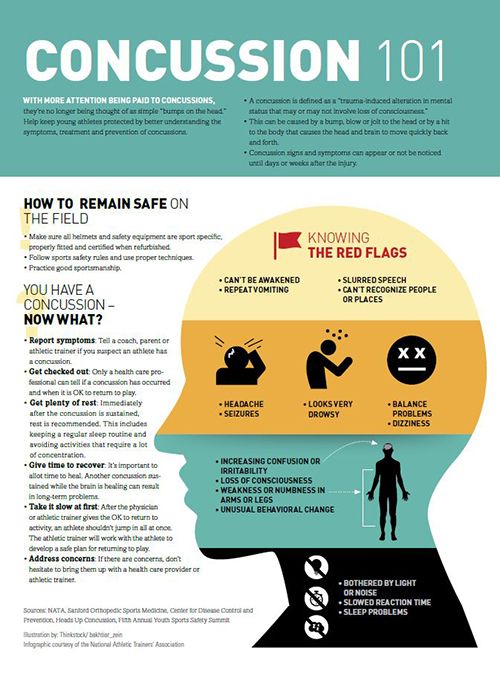Do you ever gripe at work
Workplace Gripes: Why Leaders Should Listen to Them
Skip to content
DATE: January 5, 2018
You’re working away, minding your own business, trying to get something productive done, when suddenly an employee approaches — and the workplace gripes begin. Whether it’s a grumble, grouse, protest, whine or bellyache, the question remains the same: why should leaders have to listen to workplace gripes? Today, I’m going to help you with complainers, complaints and show you why leaders should listen carefully to them.
First, the answer to my question is an emphatic “yes!” workplace gripes are inevitable. Why? Most people are simply unwilling or unable to be satisfied with the status quo. Those same gripers, under different circumstances, may readily admit to having it better today than they did years, months, even weeks ago. But, that’s really immaterial to them as followers — and to us as leaders.
For followers, it’s just human nature to want and expect continual improvement and progress in their lives and work. Therefore, when progress doesn’t show itself quickly enough, the griping begins.
And who do they gripe to? Primarily, those whom they think might be able to help them — their leaders!
Workplace Gripes: An Important Form of Leader / Follower Communication
But for leaders, as frustrating and time consuming as it may be, workplace griping is still a form of internal leader / follower communication and therefore, should be recognized as having a significant benefit.
Though there may be little opportunity for you to make an immediate correction regarding a specific gripe, actually hearing that gripe allows you to keep your ear to the ground and your finger on the pulse of what’s happening with followers — be it good or bad.
As frustrating as they can be, workplace gripes are a form of leader / follower communication and have important benefits.

You certainly recognize that an individual’s attitude or state of mind, can directly impact their effort, output and quality of performance. So, how should leaders deal with employees who gripe?
Very carefully! Seriously, there is an irrefutable point to consider and keep in mind.
Once an issue has been brought forth and heard, the relationship between leader and follower changes forever. If the leader ignores, alienates, embarrasses or generally ticks off the griper, the problem has not been resolved — it’s been compounded.
Most leaders are quick to say, “If you have any problems, be sure to let me know about them — I care.” However, if a leader’s actions and attitudes following a complaint don’t align with these sentiments, the leader is little more than a professional hypocrite in the eyes of the one who complained. And that’s not good.
Symptoms Bigger Problems May Exist
So, here’s an idea to implement. Going forward, discipline yourself to think of workplace gripes and complaints not as petty nuisances. Instead, train yourself to think of them as “symptoms” that problems exist. Notice I stress the word symptoms.
Going forward, discipline yourself to think of workplace gripes and complaints not as petty nuisances. Instead, train yourself to think of them as “symptoms” that problems exist. Notice I stress the word symptoms.
I’m not suggesting that every gripe is a serious problem. However, I definitely am suggesting that every gripe be explored until it’s determined whether or not a legitimate problem exists.
The reasoning is simple. If you can take care of the little things, the big things tend to take care of themselves. However, if you don’t take the time to take care of the little things, they tend to grow, fester and become those big things that rob leaders of time, energy and overall effectiveness.
Now that would be something to gripe about!
Additional Resources
- In Search of Original Thought [Blog Post]
- How Leaders Prevent Problems [Blog Post]
- Get Your Free Leaders Journal: 13 Videos to Take Your Leadership from “eh” to EXCEPTIONAL!
- About Phillip Van Hooser
- More Blog Posts Like This
Phillip Van Hooser, CSP, CPAE is committed to helping organizations transform their business outcomes by building engaged employee relationships. He is an award-winning keynote speaker and author on engaged leadership and communication. His most recent book is “Earning The Right To Be Heard," a primer for creating greater influence and opportunities. Connect with Phil on LinkedIn and Facebook.
He is an award-winning keynote speaker and author on engaged leadership and communication. His most recent book is “Earning The Right To Be Heard," a primer for creating greater influence and opportunities. Connect with Phil on LinkedIn and Facebook.
Recent Posts
-
Quiet Quitting: What Is It & What To Do About It
3 Things to Know About Quiet Quitting With the rise in popularity of the term “quiet quitting”, a lot of leaders are struggling to understand exactly what it is, and more importantly, what to do about it. In our latest episode of The Man & The Millennial Show, we dive into this employment phenomenon and help you understand […]
-
What to Do to Gain AND Retain Employees
In the pre-COVID world, job candidates would apply for a job, hopefully, land an interview, then sweat, wish, hope, and pray that they would be selected for the position.
 With today’s tight labor market, job applicants and employees are firmly in the driver’s seat. No longer are they merely hoping to be picked or settling for […]
With today’s tight labor market, job applicants and employees are firmly in the driver’s seat. No longer are they merely hoping to be picked or settling for […] -
How to Get Your Boss to Listen to Your Ideas
Got a Great Idea But You Boss Isn’t Listening? In a recent corporate leadership development session, I was asked the following question. “How do I present an idea that I think has great benefit for my organization to my leader who doesn’t typically invite my input?” Whether you are an emerging leader trying to create influence for yourself […]
Griping employees? Teach them to do it right
Griping employees? Teach them to do it right
Face it: Your guys are going to complain about work. Use a weekly team gripe session to keep most of the grumbling aboveboard, where you can do something about it.
One of the first things you learn—usually the hard way—about being a manager is that your employees always have problems with the way things are going on the team. Typically, these problems are no big deal; that is, unless they sit unattended and festering in a stew of frustration and conspiracy. That’s when employees’ issues cease to be with the situation and start pointing directly at the manager.
All they had to do was tell you that something was bugging them, right?
At each of my weekly team meetings, I set aside time for a peeve session, when my team members know it’s okay for them to vent about whatever is driving them crazy. I make sure the griping is never personal or too acerbic. Obviously, serious interpersonal conflicts and other HR-type issues need to be handled offline. But otherwise, I leave the floor open for any comments team members want to make. Sometimes, their peeves are just the natural frustrations that come with earning a paycheck, but I’ve also found that these group feedback sessions are an invaluable source of ideas for improvement.
Some managers complain that my little gripe sessions just give my team license to take potshots at other groups. My response has always been that there’s no way I can keep employees from complaining about work and their colleagues—I just want them to get in the habit of doing it out in the open and not behind closed doors, where criticisms cease to be constructive and start being divisive. Certainly, I’ve tweaked the practice a bit to keep these sessions from getting out of hand, but using the following tips, I’m usually pleased with the outcome.
Be patient—it takes a while to get going
Being a natural loudmouth, I’m always amazed at how long it takes team members to warm up to a weekly gripe session. However willing people may be to complain to their friends, actually saying it out loud in a room full of their peers—not to mention their boss—can be absolutely terrifying. After all, grumbling opens them up to possible criticism too, and nobody likes that. My advice is to encourage your strongest team members to take the lead by discussing fairly safe peeves for a couple of weeks while the rest of the team members catch on. If you feel the need to jump-start the process yourself, pick a known topic—inadequate documentation or vendor service, for example—that the team can largely agree on without ruffling any feathers.
If you feel the need to jump-start the process yourself, pick a known topic—inadequate documentation or vendor service, for example—that the team can largely agree on without ruffling any feathers.
Make sure real-time peeves come up at the meeting
When employees bring their problems to your attention during the week, tell them to raise their issues again during the next peeve session. I’ve found that this not only helps build team members’ confidence, but it also gives me a chance to see if one team member’s seemingly minor irritation is actually a systemic nuisance that’s wasting a lot of my guys’ time.
Make sure everybody shares a peeve on a regular basis
Remember: The entire rationale behind holding regular gripe sessions is the fact that your team members do have problems that need to be openly discussed. If they’re unwilling to talk about even relatively small issues in the safety of a team meeting, how will you get the real feedback you need to fix more serious problems down the road? Don’t make the peeve session an obligation or graded homework assignment, but if you notice that a team member has taken a bye for a few weeks, let that person know you expect to hear something next time. Don’t confuse silence with assent—nobody’s that consistently happy at work.
Don’t confuse silence with assent—nobody’s that consistently happy at work.
Agree with valid peeves, but don’t hesitate to play devil’s advocate
Just because you honestly want to hear your team members’ gripes doesn’t mean that you can or will do anything about them. Making your employees understand that every complaint won’t be addressed is probably the toughest hurdle in managing the expectations that come with gripe sessions. Of course, you’ll need to rely on tact if some young admin says he doesn’t see why the company can’t just tell the stupid end users to run the latest freeware productivity suite on Linux desktops.
In time, you’ll find helpful allies in your veteran team members who can share their perspectives. You’ll often find yourself asking your team to look at small irritants in a broader context of a project’s deliverables or the company’s goals. That’s a great exercise, not only for your employees but also for you as the manager—never forget that the all-macro issues over which managers obsess actually live or die in the daily work of your frontline team. If there’s a disconnect between the two, you need to know about it.
If there’s a disconnect between the two, you need to know about it.
Make sure somebody who might take healthy exception to a peeve is in the room
One of the first adjustments I made to my gripe session formula was to invite representatives from other teams to our weekly meetings. These partners don’t have a lot to say as we move through the week’s status reports and business updates, but they perk up when the peeve session comes around. After all, that’s the whole point of this exercise—you’re showing your team that it’s important to discuss issues openly with the people who are directly involved. You’ll find that, after a couple of bumps, a little chaperoning is all you need to get this crucial third-party perspective in your sessions. It’s good politics too—other managers will know you’re not just taking potshots at their teams.
Make team members who have peeves do something about them
This one is my favorite. If a couple of weeks go by before you follow up a team member’s gripe with an assignment based on that gripe, you’re probably doing something wrong. I usually ask the employee to set up a meeting to resolve an issue with another team and have them wrap up the assignment with a memo or a report at the next team meeting. This is a perfect exercise in constructive communication: Identify a problem, discuss it openly, and fix it.
I usually ask the employee to set up a meeting to resolve an issue with another team and have them wrap up the assignment with a memo or a report at the next team meeting. This is a perfect exercise in constructive communication: Identify a problem, discuss it openly, and fix it.
Set time aside after the meeting to follow up
I usually spend 30 minutes on the day of my weekly meeting on brief follow-ups with team members who I sense have issues they didn’t want to discuss during the gripe session. If appropriate, I encourage the employees to speak up at the next meeting, but often I find that the issue really does need more discreet attention. If nothing else, just the cultural exercise of having my guys complain in a controlled environment helps me spot individual morale problems.
You’ll see the ultimate benefit of teaching your guys to gripe constructively when they start doing it outside the team meeting with their peers and internal clients. It’s one of those soft skills you can’t measure. But I credit my team’s little peeve sessions for much of the professional growth I’ve seen in some fairly challenging employees with reputations for being ill-tempered or combative. Complaining is just like any part of work—if you’re going to do it, do it right.
But I credit my team’s little peeve sessions for much of the professional growth I’ve seen in some fairly challenging employees with reputations for being ill-tempered or combative. Complaining is just like any part of work—if you’re going to do it, do it right.
Ken Hardin
Published: Modified: See more CXO Share: Griping employees? Teach them to do it right- CXO
Editor's Picks
- Image: Rawpixel/Adobe Stock TechRepublic Premium
TechRepublic Premium editorial calendar: IT policies, checklists, toolkits and research for download
TechRepublic Premium content helps you solve your toughest IT issues and jump-start your career or next project.

TechRepublic Staff
Published: Modified: Read More See more TechRepublic Premium - Image: Nuthawut/Adobe Stock
- Image: WhataWin/Adobe Stock Security
Top cybersecurity threats for 2023
Next year, cybercriminals will be as busy as ever. Are IT departments ready?
Mary Shacklett
Published: Modified: Read More See more Security - Image: Sundry Photography/Adobe Stock Cloud
Salesforce supercharges its tech stack with new integrations for Slack, Tableau
The company, which for several years has been on a buying spree for best-of-breed products, is integrating platforms to generate synergies for speed, insights and collaboration.

Karl Greenberg
Published: Modified: Read More See more Cloud - fizkes / iStock
- Image: Bumblee_Dee, iStock/Getty Images Software
108 Excel tips every user should master
Whether you are a Microsoft Excel beginner or an advanced user, you'll benefit from these step-by-step tutorials.
TechRepublic Staff
Published: Modified: Read More See more Software
How to live simply: ways
"Don't teach me how to live, help me better financially," you grumble when your friends advise you to "forget it. "
"
Website editor
Tags:
VOICE Psychology
What to do, if
How to change your life
"Don't teach me how to live, help me financially better," you grumble when your friends advise you to "relax" and "slaughter." This is because you simply don't know how it's done. And we'll tell you!
Don't dramatize
Do you have the magical gift of turning a fly into an elephant and then worrying about the magnitude of your imaginary failure? The habit of inflating your failures breeds anxiety. Sometimes we make a semblance of fatal out of our passions and grow in this way in our own and other people's eyes, completely forgetting about the preservation of our nervous system. “Most often, the desire to exaggerate everything is distinguished by people who have taken out of the parental family the feeling that something must be constantly overcome,” says psychologist Anetta Orlova. – Gradually, this becomes their behavior model: to constantly talk about their almost “incredible” difficulties and, of course, about the enormous efforts that they have to make to overcome them. They do not live, but report. And at the same time, they constantly need a positive assessment of others. nine0003
– Gradually, this becomes their behavior model: to constantly talk about their almost “incredible” difficulties and, of course, about the enormous efforts that they have to make to overcome them. They do not live, but report. And at the same time, they constantly need a positive assessment of others. nine0003
Advice: Did something “terrible” happen? "Go out" to an imaginary balcony and look at the situation from the fifteenth floor. You can imagine that you are flying over all this in a balloon, which smoothly takes you to a blue height. Calmed down? Well, now plan what to do.
Don't think it through
If you think that you see through others and you can always understand what and why the people around you are doing, what they feel and think at any given moment, you are wrong. After all, there has long been a saying that an alien soul is darkness. And even psychologists cannot always guess human reactions in a given situation. Thinking that you can always calculate the act of another person, you turn off your attention and start acting on the basis of your assumption. And all this instead of just calmly observing the development of events, and not worrying in vain. Especially in those moments when it seems to you that someone wants to do something not very good with you. nine0003
Thinking that you can always calculate the act of another person, you turn off your attention and start acting on the basis of your assumption. And all this instead of just calmly observing the development of events, and not worrying in vain. Especially in those moments when it seems to you that someone wants to do something not very good with you. nine0003
Tip: Talk more and listen carefully! If you want to know what the other person thinks, just ask him. We often forget that the shortest path is the most direct. And we love to confuse everything.
Live in the present
It has been proven that most troubles, disappointments and misfortunes occur among those people who remember and cherish their past grievances and problems. Understand: the more often you scroll through them in your mind, reliving the unpleasant feelings that they delivered to you, the larger they will seem. This means that you will feel offended not in the past, but in the present. Sometimes it’s even easier to just forget about the offense by erasing it from memory than to forgive it. nine0003
Sometimes it’s even easier to just forget about the offense by erasing it from memory than to forgive it. nine0003
Tip: Let the past be in the past. And in order to forget, you have to ... remember: all the good moments, all
bitter, joys and insults.
And put them in an imaginary locker: good - in one box, bad - in another, actions - in the third, thoughts - in the fourth ... Then (mentally) close all the boxes with a key and put it ... wherever you want, even throw it away.
Don't generalize
Remember that one or two setbacks are not a sign of catastrophic bad luck. And one accidental triumph - unconditional genius. Even three unpleasant events following one after another cannot always be called a protracted trend. Sometimes it's just random circumstances, not a chain of troubles. And yet, according to statistics, insults and defeats are remembered longer than victories, by 7-12 times! Therefore, psychologists recommend that you keep a diary of your achievements, in which you will write down not only your victories, but in general everything good that happens to you: a compliment said by a colleague; the smile of a stranger on the subway; gentle sms from a loved one. The main thing is to find something good every day! And when you feel sad, re-read your “positive diary”. nine0003
The main thing is to find something good every day! And when you feel sad, re-read your “positive diary”. nine0003
Don't be a perfectionist
Perfectionism is a kind of disease that keeps you from enjoying the present and pushes you all the time to look for something better. And the search for the ideal is an endless process, since, as you know, there is no limit to perfection. At the same time, absolutely everything that you already have (beloved, work, friends, etc.) will seem uninteresting and imperfect.
Advice: Psychologist Anetta Orlova recommends: “If you are used to being perfect, try to do things differently for at least 5 minutes a day, do something stupid, don’t be afraid to look funny and weak. If perfectionism is directed at others, ask loved ones to stop you when you criticize others. The main thing is to accept the world as it is.” nine0003
Make no rules
Do you remember, in childhood, your parents told you that, in addition to the verb “I want”, there is also “must” and “should”. Often these two words, supported by certain rules of behavior that you consider unshakable for yourself, give you only a feeling of guilt and neuroses. Of course, with age, we all have some obligations to our relatives and colleagues, but still we must not forget about what you want. After all, loading the brain with various obstacles, you miss a lot of opportunities. And when you try to force others to follow your rules, you turn into a bore or a dictator. Agree, not the most pleasant roles. nine0020
Often these two words, supported by certain rules of behavior that you consider unshakable for yourself, give you only a feeling of guilt and neuroses. Of course, with age, we all have some obligations to our relatives and colleagues, but still we must not forget about what you want. After all, loading the brain with various obstacles, you miss a lot of opportunities. And when you try to force others to follow your rules, you turn into a bore or a dictator. Agree, not the most pleasant roles. nine0020
Avoid stereotypes and labels
Use words with a positive connotation, or at least a neutral one. After all, the language of negativity breeds similar thinking. And when you divide things into certain categories and evaluate them, you stop seeing their real meaning. Psychotherapist Natalya Untilova notes: “Now the words “good” and “bad” have for the most part lost their personal character and have become standards and rules of conduct. A person, forgetting that "good and bad" are only reactions, takes them for facts, thereby depriving himself of the opportunity to gain some new experience. nine0003
A person, forgetting that "good and bad" are only reactions, takes them for facts, thereby depriving himself of the opportunity to gain some new experience. nine0003
Advice: Try to live at least a day without evaluating anything - just watch and live. You will see how nice it is!
Beautiful congratulations on the holidays (Defender of the Fatherland Day (February 23)) ~ Let you grumble in the morning ~ Beesona.Ru
Congratulations on the holidays
New Year, Christmas, March 8
Registration Login
- nine0096
-
Playcasts
-
Photos
-
Books
-
Congratulations
-
Toast
-
Blogs
-
Authors
-
Competitions
-
Poster
-
Radio
-
Chat
Blogs toasts Poster Radio Photo albums Popular lyrics Poems of writers of the 18th-20th century Happy Birthday Suggestion book About Us Contacts
Add congratulations
Congratulations:
Happy Birthday (46324)
with an anniversary (14434)
for wedding (2686)
anniversary of weddings (4949)
Important events (6042)
beloved (13836)
Holidays (93378)
Universal (3045)
by names (12000)
To gifts (3466)
The next holidays:
01
New Year
04
Saint Anastasia
05
International Boyscout Day
06
Christmas Christmas tree
06
Saint
07
Christmas
08
Cathedral of the Blessed Virgin Most of the Blessed Virgin (Baby Porridge)
Holidays ~ Holidays February 23) ~ №106631
Even if you grumble in the morning,
And forget to make coffee,
But still smart beyond your years,
You are devoted to your family and work.
Behind your strong back
Download picture
Download picture
Download picture
Download picture
Download picture
Download picture
Download picture
Download picture
Download picture
Download picture
See congratulations on the holidays:
We work with you in the same team. nine0020 Today, let me congratulate you a little,
After all, you undoubtedly served in the army
And we know this for sure!
Our nice guys
4
Our nice guys,
We congratulate you all,
Marks this date
Our cheerful friendly class.
We want you today..
2
We want to congratulate you today,
Dear, brave men! nine0020 May wishes always come true,
Like having a genie lamp in your pocket.
Congratulate women on this day
3
Congratulate women on this day
Will it be strange, people?
It's hard to imagine
How would we be without them.














